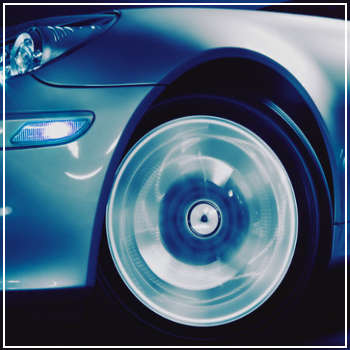 Winter months can bring unwelcome surprises for car owners, like spotting tiny rust marks or noticing the glossy finish losing its shine. Just how long should your car’s exterior paint last?
Winter months can bring unwelcome surprises for car owners, like spotting tiny rust marks or noticing the glossy finish losing its shine. Just how long should your car’s exterior paint last?
Unfortunately, there isn’t a straightforward answer. Some people notice issues just a few years after purchasing a brand-new vehicle. Sometimes, these early signs of rust could be due to a manufacturing defect during the paint application process.
Back in the early 2000s, a Canadian court case brought attention to the differing expectations between car manufacturers and consumers. Manufacturers believed the paint job should last around five to six years under ideal conditions, but the court ruled that factory-applied paint jobs should typically last between 10 to 15 years.
Several factors can affect how long your car's paint will last: the quality of the factory application, the amount of UV exposure, storage conditions, whether the car is frequently parked outside, and the presence of atmospheric pollutants.
Clear Coat Delamination
Throughout the late '90s and early 2000s, it was more common to see the clear coat on cars begin to peel off, revealing the paint beneath. Though this issue is less frequent today, it usually points to a subpar paint job. A clear coat starts peeling when there are compatibility issues between the paint and primer used. If cheaper materials are chosen or layers aren't allowed enough time to dry, the topcoat can bubble and flake. Outside contaminants, like chemicals or dust particles, can also cause this problem.
Rusting
Rust forms primarily due to exposure to the elements and poor-quality paint applications that expose the metal beneath. Parking your car near the ocean or driving over freshly salted roads in winter without rinsing afterward can accelerate rusting. Scratches that reach the metal provide an entryway for rust to develop and spread. Poor-quality paint jobs, either done by a shop or attempted yourself, won’t offer adequate protection, leading to rust appearing sooner than expected. Not using body cavity wax or seam sealers can exacerbate this issue, allowing moisture and road salt to penetrate where they shouldn’t.
Fading and Rough Spots
The longer a car stays outdoors, the more it’s subjected to UV rays, weather fluctuations, and air pollution. Leaving your car uncovered increases the likelihood of these external factors damaging its surface over time. UV rays are especially harmful; they break down molecular bonds, causing the paint to lose its sheen and potentially cracking plastic parts.
Even if you don’t have a garage, covering your car with a tarp or temporary shelter and regularly waxing the surface can help reduce fading.
Over-Washing
Many believe frequent washing is good for their car, but washing too often can actually harm the paint job. Abrasive washes within a short timeframe can wear down the surface, making the car look dull over time. It’s not always noticeable until one day you realize your shiny new car has lost its luster.
Generally, wait at least a month before washing a newly painted car. Paint needs time to cure and properly bond, so washing within 30 days of applying new paint can lead to problems.
When washing, be gentle. Use cold water and a soft microfiber cloth to clean the surface, then follow up with another dry microfiber cloth to remove any remaining moisture right away. Avoid scratches or leftover residues during the process.
Wait at least 60 days before applying wax. Start with high-quality carnauba wax to protect the paint.
For reliable auto painting services, turn to the experts at DaSilva’s Auto Body, who use advanced spray booths. For more information or to book an appointment, get in touch today.
This article is meant to provide general advice and tips for maintaining your vehicle’s exterior. Always refer to your car’s manual for specific recommendations regarding maintenance and care. If you notice significant damage or issues with your car’s paint, it’s best to consult a professional for assistance. Proper upkeep can extend the life of your vehicle and ensure its appearance remains appealing for years to come.
Injection Of Antibiotics,Injection Of Antiparasitic Drugs,Injection Of Hormones,Injection Of Anti-Inflammatory And Analgesic Drugs,Injection Nutritional Supplements
Henan ShowVet Industrial Co., Ltd. , https://www.cxbt-showvet.com